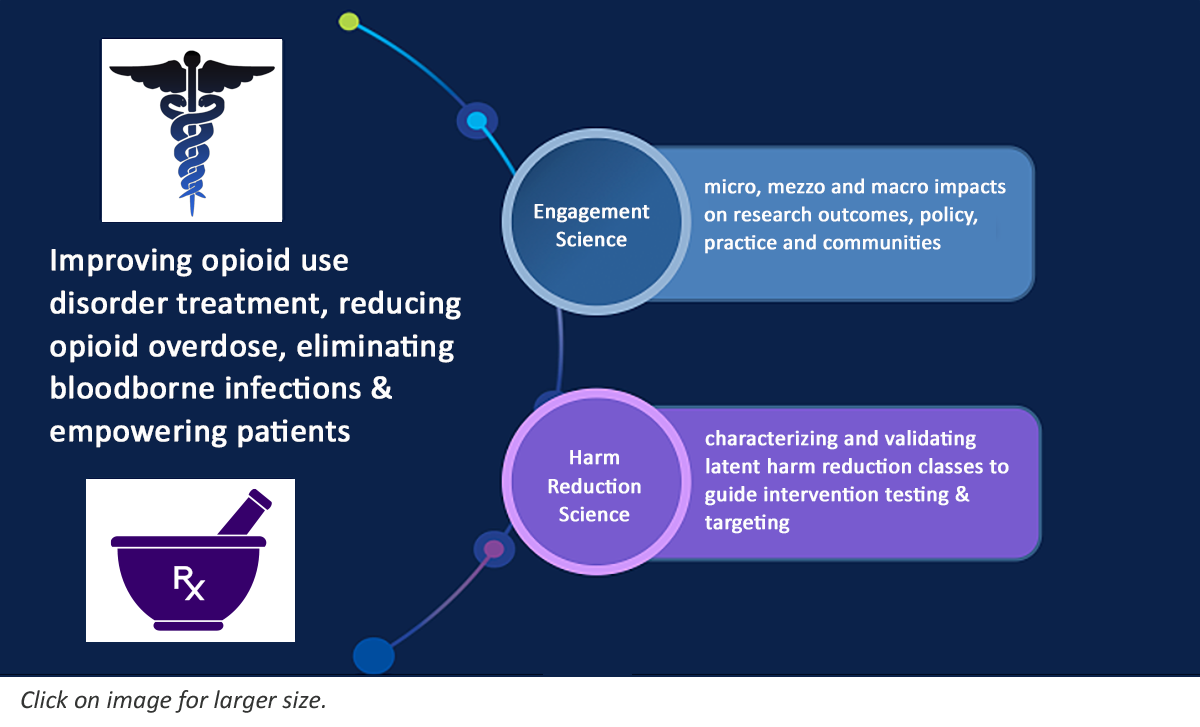The Harm Reduction Research Lab was created in 2018 by Dr. Beth Meyerson, to improve the health of people who use drugs, through collaborative research to reduce opioid overdose death and bloodborne illnesses such as HIV and hepatitis C. It is located in the Department of Family and Community Medicine at the College of Medicine – Tucson, the University of Arizona.
The work of this lab is translational to policy and practice, oriented as community based participatory action research (CBPAR), and grounded in implementation science, in order to reduce the time between scientific innovation and practice ("bench to bedside"). Findings from lab studies have been used to inform state legislative policy in Indiana and Arizona for syringe access decriminalization, administrative policy in Arizona to remove barriers to curative hepatitis C treatment, as policy change to allow pharmacy dispensing of subsidized naloxone.
A throughline of research involves developing measures for community based participatory action research and measures to characterize harm reduction. The lab’s harm reduction latent class studies seek to improve intervention precision to achieve evidence-based, patient-centered pharmacy and medical practice.
A feature of the Harm Reduction Research Lab is to develop the pipeline of researchers with lived drug use experience and with OUD treatment systems, so as to better inform the science. This involves incubating the research and professional development of colleagues who seek academic research careers.
Faculty of the Harm Reduction Research Lab hail from 7 universities throughout the U.S. and in Australia. Together they conduct research with guidance from an Arizona, transdisciplinary group of people, the Drug Policy Research and Advocacy Board “DPRAB”.





